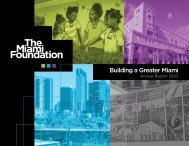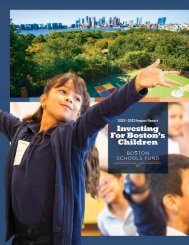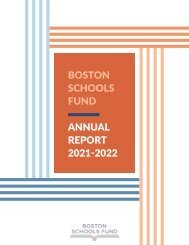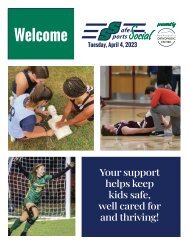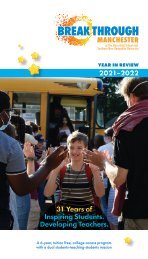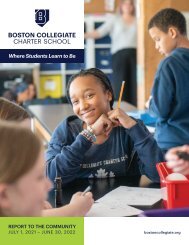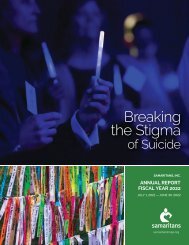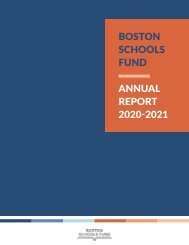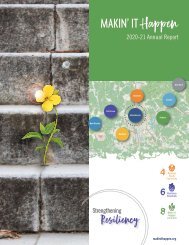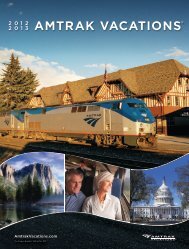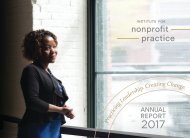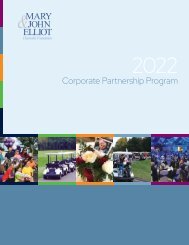HSA 65th Anniversary Book
• To provide an organization with facilities and some capital through which students of the university could be encouraged to develop and to manage small businesses that might provide funds that could be applied to the cost of their education. • To afford needy students of the university the opportunity to earn substantial amounts of money for brief periods of work through the exercise of energy and ingenuity. • To encourage students to explore the business community as a potential career choice. • To enable students to gain valuable experience and to develop a sense of the excitement and responsibility involved in the management of small enterprises.
• To provide an organization with facilities and some capital through which students of the university could be encouraged to develop and to manage small businesses that might provide funds that could be applied to the cost of their education.
• To afford needy students of the university the opportunity to earn substantial amounts of money for brief periods
of work through the exercise of energy and ingenuity.
• To encourage students to explore the business community as a potential career choice.
• To enable students to gain valuable experience and to develop a sense of the excitement and responsibility involved in the management of small enterprises.
Create successful ePaper yourself
Turn your PDF publications into a flip-book with our unique Google optimized e-Paper software.
fy
72
JUNE 1, 1971 –
MAY 31, 1972
The hits keep on coming
PRESIDENT
Michael
Ryan
OFFICES
4 Holyoke St.
2 Trowbridge St.
LET’S GO TITLES
What a rough and bruising year for HSA. With General Manager Andrew Nelson forced to take extensive
medical leaves, President Michael Ryan ’72 bore the weight of leadership for the entire company for much of
the year. Several major airlines introduced dramatically low student fares to Europe, dealing HSA’s Charter
Flights agency a crippling blow. Unable to compete with the new rates, the agency had no choice but to
cancel five of its seven charter flights to Europe and to slowly begin the process of changing its business focus.
Considering the fact that Charter Flights provided 25% of corporate overhead, ’twas a grim scene indeed.
HSA promoted a benefit showing of the movie Dealing with claims that the proceeds would go toward
financial aid. The Crimson had a field day when HSA proved unable to provide accurate statistics proving
its claims. An investigation by the Commission of Inquiry ensued when two professors complained about
concerns they had regarding HSA’s effects on academic performance, HSA’s monopoly position, and HSA’s
allocation of financial aid. A general anti-business attitude on campus dampened recruiting.
On a more positive note, the Harvard Bartending Course flung its doors open to the general public for
the first time. Now offered twice a month, the course had previously been used solely as a training ground
for Harvard students dreaming of becoming the brilliant and dashing bartending gurus employed by the
Catering agency. In its inaugural year, the Custodial agency provided janitorial services on a contract basis
to firms and individuals.
Let’s Go: Europe continued its massive weight-gaining campaign, putting on an additional 208 pages to reach
a buff, muscular 704 pages. Editor Franklin “Pancho” Huddle, AM ’70, PhD ’78, used his extensive travel
experience in places like Eastern Europe, Iceland, and North Africa to re-add seven countries that had been
farmed off to the ill-fated Adventure book. Huddle personally wrote or rewrote more than two-thirds of the
guide, and his 19 Researcher-Writers (RWs) took care of the rest, giving it an editorial revamp of a degree
not seen since Let’s Go’s founding. Fifty thousand copies were produced, with Dutton offering a guaranteed
advance on royalties for the first time.
Let’s Go: United States and Canada
reappeared in its second incarnation.
Researched in the field by 40 students
and featuring a cover of two very happy
people hitchhiking across from a Howard
Johnson’s, the 704-page book dished up
gobs of budget glee on all 50 states and
Canada as well as “the dope on dope.”
Sponsored by the Boston Phoenix, HSA
also deployed ravenous students into the field to grub heartily and to compile the 192-page Cheap Eats:
Inexpensive Dining in Greater Boston, a guide to over 100 restaurants in the Boston area.
Courtesy of the College Entrance Examination Board (and $35,000 of its money), 200,000 additional copies
of College and the Black Student came into being for national distribution.
WHERE THEY ARE NOW...
Pancho Huddle | AM ’70, PhD ’78
JOBS AT HSA: Editor, Let’s Go: Europe, FY72; Researcher-Writer, Let’s Go: United States and Canada, FY72.
WHAT’S THE FUNNIEST STORY FROM YOUR TIME AT LET’S GO? “After I worked for Let’s Go, I flew to the Far East. I went
to Nepal, then I went to Europe. I bought, from a guy who was peeing against a wall next to an American Express, a station wagon
— a tiny hatchback, an old but serviceable car. It gradually ran down; the rear axle broke while changing the tire. … The battery was
dead, but the car was very light: you could run alongside it, push it along, then jump in! I was finishing up in Paris, flying back to the
States to be an adviser to Let’s Go: United States. I had two choices: one was to drive the car to the airport, or leave it with the motor
running and the keys in it. I decided to park it near the Sorbonne on a hill. I wrote a note in French: ‘Free car, help yourself!’ Nine
months later, while advising for Let’s Go, [I received] a letter from the French police: ‘Dear Mr. Huddle, your car is accruing storage
charges.’ They had towed it. When I came back to France 12 years later, I remember thinking, ‘Oh, Christ, I wonder if they’ll catch
me [and make me pay].’ But they never did.”
WHERE HAVE YOU WORKED SINCE LET’S GO? “I got my doctorate in Central Asian Languages and Literatures. The graduate
student union struck the university, and I was its leader. My adviser was on the other side of the barricades. After that, I wasn’t
sticking around Harvard. There were lots of worlds to conquer outside academe. I joined the Foreign Service and went from
Kathmandu to Thailand to the Philippines to Burma to India to Canada… I [was appointed U.S. Ambassador to] Tajikistan right
after 9/11; I had a reputation for lots of danger posts. In the Philippines there had been a communist insurgency, and they killed the
guy ahead of me on the list. So I went to Tajikistan to do Secret Squirrel–type stuff.”
WHAT HAVE YOU BEEN UP TO LATELY? “I train special forces on how to think — not how to fight, how to think. ... It’s like laser
tag — they shoot you with electronic guns. I roleplay as an ambassador. I’m teaching them, how do you function in an embassy, in
a sovereign country, not in a place we occupy — a country where you have to play by local rules.”
CAN YOU TELL US ABOUT WHAT HAPPENED TO YOU ON NOVEMBER 23, 1996, ON ETHIOPIAN AIRLINES
FLIGHT 961? “We were hijacked and ran out of fuel. I thought, ‘It’s been a good ride’; I was pleasantly surprised I was taking it
like a man. … [After we crash-landed in the Indian Ocean,] I literally woke up and the plane was floating in the water in front of
me. I was in my seat, bobbing up and down in the water… [It was] the third-closest call of my adult life.”
• Europe • United States and Canada OTHER TITLES
AGENCIES
• Cheap Eats: Inexpensive
Dining in Greater Boston
• Linen
• Publishing
• Catering
• Charter Flights
• Custodial
• House Painting
• Refrigerator Rental
• Europe by Car
• Rings
• Union News Stand
• Moving
• Fall Blotter
• Guide Tours
28
HSA 65th Anniversary History Book 29




